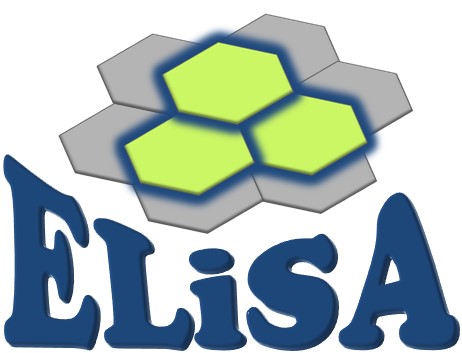
End: 30/09/2018
Funding: National
Status: Completed
Advanced Signal and Information Processing (ASIP)
Acronym: ELISA
Code: TEC2014-59255-C3-1-R
Information and Communication Technologies (ICTs) are the main technological pilar sustaining the ever growing digital society. Given the actual radio-spectrum scarcity, the major challenge of the ICT community nowadays is the design of future networks capable of managing the unprecendented traffic increase predicted by 2020 and beyond. This has motivated a change on the spectum regulators worldwide, which are now seeking a more efficient and flexible use of the spectrum through the release of new unlicensed bands and of novel licensed spectrum sharing policies. 5G networks will also face this challenge by aggressive frequency reuse schemes in heterogeneous networks, in which a dense deployment of small cells, macro-cells and even satellites will share the same frequency resources. However, all these scenarios become interference-limited, and therefore require advanced management techniques not only to mitigate interference but also to take advantage of it in order to boost the overall network capacity.
The main aim of ELISA is then to develop novel and energy efficient interference management techniques targeting licensed and unlicensed open spectrum systems and 5G networks. The research focus will be on the development of new waveforms and advanced multi-user techniques for increasing the spectral efficiency of wireless systems, the design of decentralized/distributed MIMO and Massive MIMO systems for taking advantage of the spatial degrees of freedom and the implementation of radio resource management algorithms for coordinating interferences. Millimeter wave and optical systems will be also adressed since they provide access to a wide and almost unused spectrum portion. In addition, energy efficiency will be one of the main constraints when designing those techniques in order to reduce the carbon footprint of ICTs.
This coordinated project will be composed of three subprojects, driven by Centre Tecnològic de Telecomunicacions de Catalunya (CTTC), Universidad Carlos III de Madrid (UC3M) and Universidad de las Islas Baleares (UIB). These partners will cooperate following a cross-layer approach in order to achieve optimized spectrum sharing solutions.The proposed research is expected to lead to substantial capacity gains and that these could be demonstrated by simulation and/or analytical results. In addition, a software defined radio based proof-of-concept of the most promising techniques will be implemented. It is expected that the project results will have a great acceptance of the international research community and that they will inspire future standards on licensed and unlicensed spectrum sharing systems and 5G networks.
Coordinator
